As a homeowners association matures, it’s common for the covenants, conditions, and restrictions (CC&Rs) that govern the community to become outdated and in need of updating.
CC&Rs are the rules that regulate the operation and use of property in a subdivision or planned community. They govern things like architectural guidelines, maintenance responsibilities, and use restrictions. As a whole, they keep the peace and ensure an association remains uniform.
While CC&Rs are meant to enhance and protect property values, when they haven’t been updated in many years, they can have the opposite effect. Here are some signs it may be time for your HOA to revise its CC&Rs and how an HOA law team like Manning & Meyers can help!
The CC&Rs Are More Than 10 Years Old
CC&Rs should be reviewed and updated periodically as communities evolve. If yours are more than a decade old, it’s likely time for a refresh. Older CC&Rs may not address newer issues that have arisen, like short-term rentals, solar panels, electric vehicle charging stations, and other technological advances.
They also may not comply with all current state and local laws. Reviewing your CC&Rs with your HOA attorneys every few years can ensure timely CC&R revisions that keep your association modern and regulated within the realm of local laws.
Members Frequently Request Exceptions or Variances
If homeowners are constantly asking the HOA board for exceptions to certain rules, there may be provisions in the CC&Rs that are no longer practical or relevant. A high volume of variance requests indicates rules that are too restrictive or outdated. Revising the CC&Rs can help align the rules with how residents actually use their properties and let your board focus on more pressing matters of community improvement.
The HOA Struggles With Enforcement
When CC&Rs contain ambiguous language or contradict other governing documents, it can be difficult for the HOA to enforce them. Lack of clarity leads to inconsistent compliance, tenant conflict, and disagreements over interpretation. Revised CC&Rs can clarify ambiguities and align with other governing documents like articles of incorporation and bylaws.
Governing Documents Conflict With Each Other
Most HOAs have several governing documents like CC&Rs, bylaws, articles of incorporation, and rules and regulations. If these documents conflict or contain contradictory provisions, it causes confusion for the board and residents. Sitting down with your HOA or Condo law team to restate outdated or superseded provisions can resolve contradictions and keep your community running smoothly..
Amenities Need Major Repairs Or Replacement
One of the key roles of CC&Rs is to provide for the upkeep of common areas and amenities like pools, clubhouses, and sidewalks. If the documents don’t sufficiently address maintenance and repairs, it can result in disputes over who is financially responsible when equipment and amenities eventually fall into disrepair or fail.
The goal of your CC&Rs is to be an overarching, clear governing doc that keeps your association on track and at its best. Unclear CC&Rs can create the exact opposite effect. Amending the CC&Rs can allocate responsibility and ensure preparation for future capital projects.
The HOA Wants to Reduce Bans and Restrictions
Outdated CC&Rs sometimes contain overly restrictive provisions that made sense decades ago but are no longer necessary or desirable. If the HOA membership wants to relax certain use restrictions, like bans on certain types of fencing or home businesses, revising the CC&Rs is the way to accomplish it clearly and effectively.
The Original Developer Still Controls the HOA
If the neighborhood developer still appoints the majority of the HOA board, they essentially still control the community. In this situation, the CC&Rs may benefit the developer more than the residents.
Your CC&Rs should always operate with the owner’s best interests in mind. Therefore, transferring control of the HOA board to homeowners in this situation is critical to the CC&R updating process.
Manage Your Association CC&R Revisions Efficiently, With Manning & Meyers
Overall, if your CC&Rs are severely outdated and no longer serve the best interests of the homeowners, it’s a sign that it’s time to amend them. The revision process takes time and money, but it’s an investment that can enhance property values, simplify governance, reduce conflicts, and prepare the community for the future. With proper planning and legal guidance from the qualified HOA and law lawyers at Manning & Meyers, the process can move along smoothly and legally.
If you’re ready to make major amendments to your CC&Rs and need help from a law expert, schedule your free consultation today!


